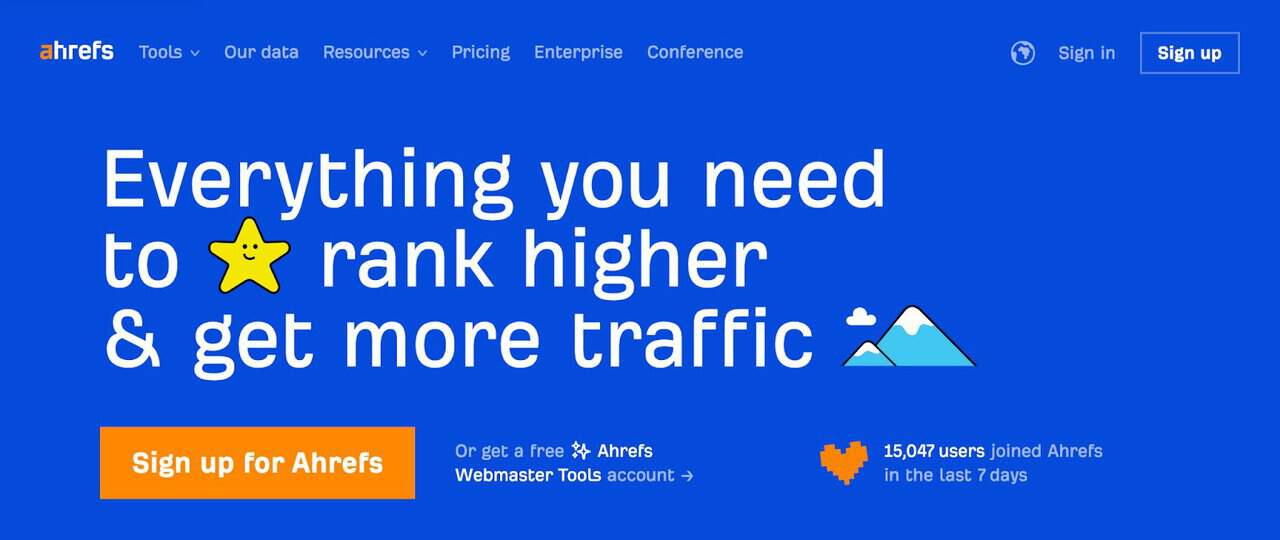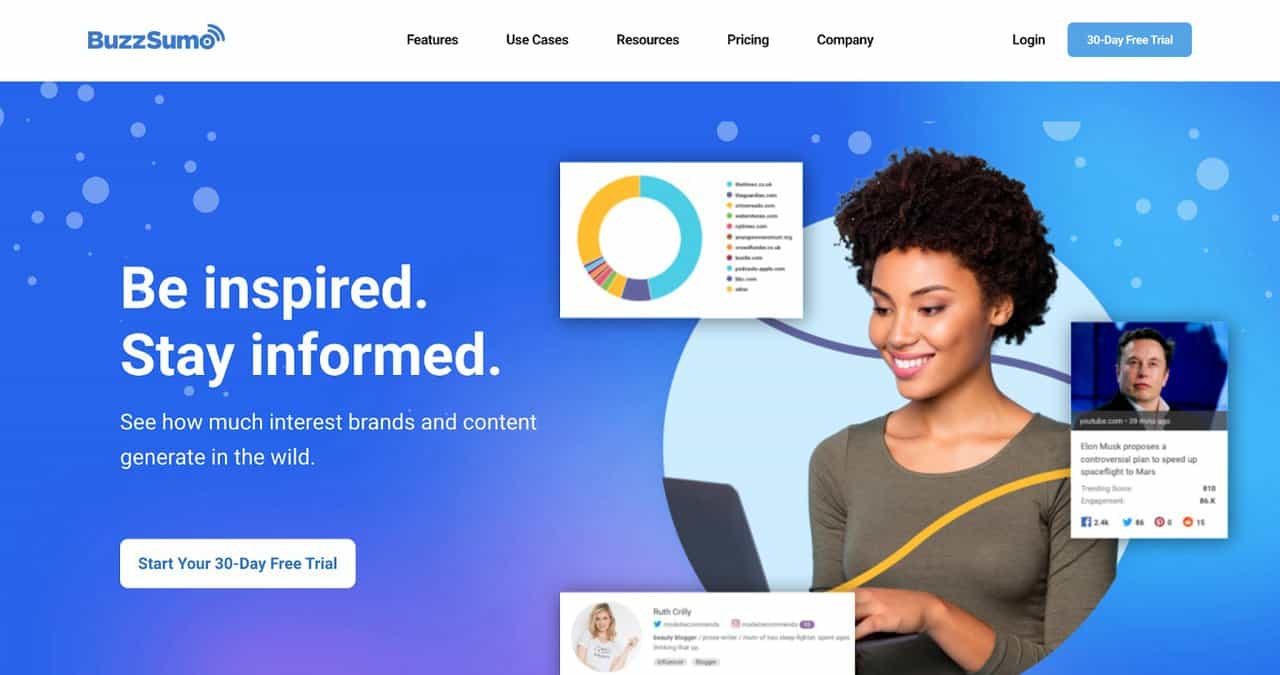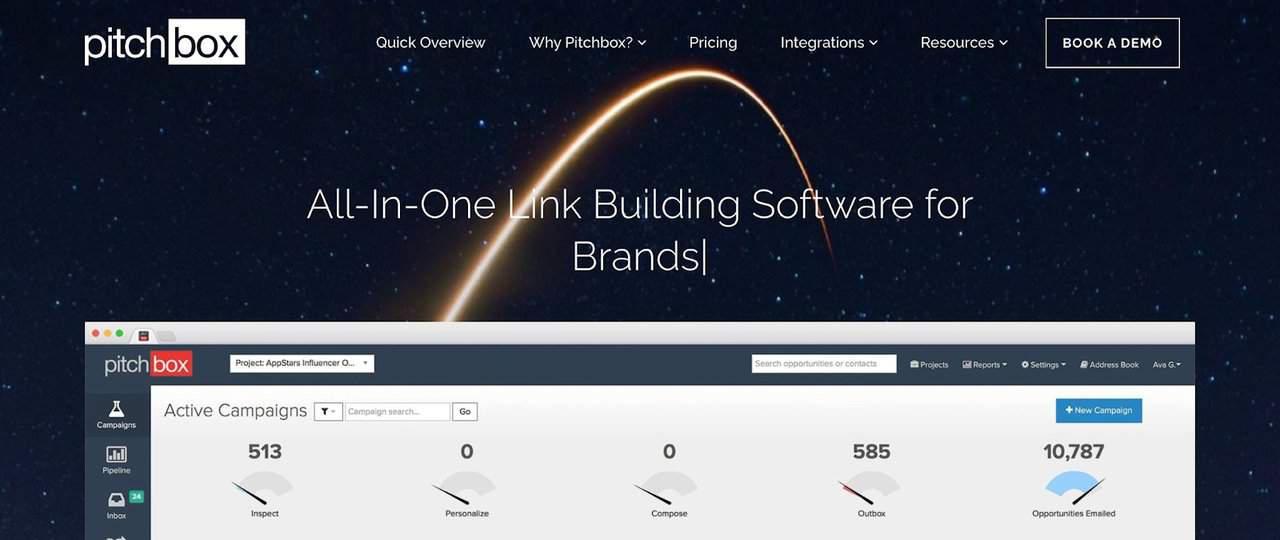Bloggers know better than anyone how increasingly hard it has become to build quality links, especially if you have no budget for that. Between the algorithms’ changes and all the daily task grind, it can become easy to put off building links till further notice. But the truth is that without links, your site might never end up getting on the first page of search results, let alone get traffic.
So, like it or not, this is a task that just has to be done. Thankfully, today, it doesn’t have to be a soul-crushing process. At least it won’t be if you integrate the best link-building tools into your strategy. In this post, we will explore which software you can and should use to make the process easier and finally give your blog content the spotlight it truly deserves.
What Types of Link-Building Tools Are There?
Backlink tools are different and serve diverse purposes. Overall, there are four categories based on the functions this software can perform:
- Prospecting. It can be a real hassle to try and find niche-relevant websites willing to link to you. Prospecting software, on the other hand, saves your time and helps you easily discover websites, bloggers, or webmasters who might be interested in collaborating with you. Hunter, NeverBounce, Zapier, etc., are all great for digging up potential sites for your backlinks. Some of these tools also help you verify if the email contacts you have for each prospect are valid or not.
- Vetting. This software is used to check the quality of the sites to help you know if they are a good fit for your link-building goals. You can use them to check the website authority, content relevance, organic traffic stats, and more. To do this, you can use any of the SEO tools you like (Semrush, Ahrefs, etc.) or even simple Google Search to look for pages that accept guest posts and PR publications.
- Outreach. These are the ones you use to craft compelling pitches that other websites won’t be able to resist. Pitchbox is a good example of this. You can personalize your outreach email and customize it to the specific site.
- Monitoring. While they are not exactly link-building tools, you’ll actually need at least one to monitor your link-building process. Some of them can be used to monitor unlinked brand mentions in real time, helping you to make the most of your efforts.
Most SEO tools combine multiple features, so you don’t have to worry about downloading or subscribing to tons of different software. With a good search, you might need only one or two of them to cover all your needs. Then, as a final move, you can partner with linksmanagement.com (a backlink indexing service) to get links that are always properly indexed in the search engines.
5 Best Software for Link Building (Paid and Free)
No one wants spammy links because, at the end of the day, it just creates more work when you have to disavow them later on. The more valuable backlinks are, the harder it is to find them. For example, backlinks from academic institutions are considered top-tier in terms of their value. You won’t find them lying around. Well, maybe once in a blue moon.
But what if you had software that made it easier to find and build rare backlinks without sweating too much? We bet you would use it. Tools like the ones listed below can help you with that.
#1 Ahrefs (All-in-One SEO Tool)

Best for: Backlink indexing, website audit, and backlink and content analysis.
Cons: A steep learning curve and high price.
Pricing: Ahrefs has tiered pricing starting from:
- Lite plan: $129/mo
- Standard: $249/mo
- Advanced: $449/mo
- Enterprise: Custom
Ahrefs is an A-list software in SEO blogging and digital marketing world. Just like a multitalented superstar, Ahrefs excels in a lot of search engine optimization and link-building roles. It has one of the most comprehensive live backlink databases. So, you can use it to do competitor backlink analysis to find good prospects for your own campaigns.
What else does it offer? It’s great for vetting prospects’ organic traffic metrics, and you can even use it to discover content gaps that you can leverage. Even the free version of this link-building software gives you access to a ton of features like keyword research, limited backlink checker, SERP analysis, website audit, and more.
On the other hand, it comes with a high price tag, which can be quite an issue for small businesses. There isn’t any lighter and cheaper plan for beginners. Plus, it can take a little while to learn how to use Ahrefs because its interface might not be the most intuitive if you aren’t a pro, of course. And depending on how many SEO tools you already use, integration might become quite a pain.
#2 Hunter (Connection Made Easy)

Best for: Finding and verifying email addresses.
Cons: Can get expensive for bigger volumes of email addresses. Email addresses can disappear from the Hunter database once they are deleted from the source website.
Pricing: Hunter offers several pricing plans:
- Free (limited features): $0/mo
- Starter: $49/mo
- Growth: $149/mo
- Business: $499/mo
Link building is arguably one of the best ways to create an online presence for your brand. But the issue is that for this tactic to work, you need to reach out to the right people. And guess what? It’s hard to find them. Sometimes, marketers spend hours, days, and even weeks trying to dig up contacts of link prospects. The worst part is that there is no telling if those email addresses are still working. This is why a lot of people use a link-building service/agency. You just skip all of that and get to the good part – better rankings. But not everyone has a budget for that. That’s why there are tools that can help find the right contacts faster.
Of course, you need a better way to find contact information besides Google search. This is where Hunter.io comes in. This email outreach platform offers multiple ways to connect you with the right people. How is that? Apart from being an email finder, Hunter is also great for handling cold outreach and doing follow-ups. No wonder a lot of people consider it one of the best link-building outreach tools out there.
#3 BuzzSumo (Content That Matters)

Best for: Tracking brand mentions and targeted journalist (media) outreach.
Cons: Steep price.
Pricing: BuzzSumo pricing plans start from:
- Content Creation: $199/mo
- PR & Comms: $299/mo
- Suite: $499/mo
- Enterprise: $999/mo
Maybe the problem is not finding sites interested in linking to you. What then? Coming up with killer content ideas that other pages will want to link to. Well, it happens that BuzzSumo is great for content discovery. You can use it to find the trending topics in your niche so you can create a more targeted content-driven link-building campaign. It doesn’t stop there.
Do you know that competitor backlink analysis is a huge part of finding link opportunities? Now, it’s about to become even easier. You can use BuzzSumo to keep tabs on your competitor’s writers so you get alerts every time they pop up on another site as guest bloggers. Handy, right? Use this information to reach out to those websites and ask if they are interested in guest posting or link insertion. This is like letting your competitors do most of the prospecting for you. Well, almost.
BuzzSumo also has a huge media database. You can see what the journalists in your niche are writing about, which is a fantastic feature for the PR guys. But if you want to use press releases for SEO, you can also make use of it. Besides, BuzzSumo can help you identify and track unlinked brand mentions. Those are publications that mention your brand without linking to you. Again, this can be a goldmine for backlinks. How does it work? Just reach out to them, send the post with the unlinked mention, and ask them to link to you.
#4 Semrush (Tried-and-True Tool)

Best for: Backlink gap analysis and scaling link-building efforts.
Cons: Limited integration ability and high price (especially for those on a smaller budget). No “light” plans for SMBs.
Pricing: The Semrush paid plans start from:
- Pro: $129.95/mo
- Guru: $249.95/mo
- Business: $499.95/mo
Semrush is an “OG” SEO tool that comes packed with many features that make it a wonderful asset for link building. What’s even better is that you can use it for various processes of link building, from prospecting to outreach and even monitoring campaigns. This greatly simplifies your life as you don’t need many tools when one can do so much, right?
You can use it for good old competitor analysis. You also get access to the special link-building tool, which makes getting links as easy as taking three steps. You enter a domain, add your keywords and competitors, and then click one button. Just like that, you receive a full list of prospects with all the essential metrics (e.g., domain rating, URL type, keywords, etc.)
If you aren’t an SEO geek, this might be the perfect solution for you. At the same time, if you want more control over the process, this feature won’t become your best friend. Plus, the free version is limited – you can use it for one project only. But if you want to dominate the SERPs for a long time, it’s simply not enough.
#5 Pitchbox (Pro Pitching)

Best for: Large-scale link building thanks to the outreach templates that make things move on quicker.
Cons: Requires a big budget.
Pricing: The Pitchbox plan starts from:
- Professional: $550/mo
- Enterprise: from $1500/mo
Pitchbox is quite a popular choice for experienced marketers and SEO specialists. Why is it their preferred link-building software? First of all, it is designed to be a one-stop link-building platform. And while it’s hard to find any problem with that move, what makes it so special? It offers 20 different ways to do prospecting alone, and that’s not counting the customizable templates for all kinds of link building outreach.
What’s the best part? It’s easy to use and also offers the ability to automate some tasks, like outreach and follow-ups. This frees you up from boring and repetitive tasks. You can also trace each step and get reports that make it simpler to adjust your strategy as needed.
But apart from all the backlink software, don’t forget that you have to master other aspects of off-page SEO (apart from link building) if you want to get sustainable results. For this, you need to get more info from guides and video tutorials. After you have a solid knowledge base, try to practice as much as you can.
Conclusion
With great freedom comes great responsibility. Sounds too philosophical for a link-building blog? Well, maybe. But you see – even though there are lots of free and paid link-building instruments out there; you still want to take your time to try them out before you settle on any particular one. Link building is more about quality and less about quantity. As long as you don’t lose sight of this goal, you will be fine. With the right tool, you will be able to get quality links in reasonable quantities.
